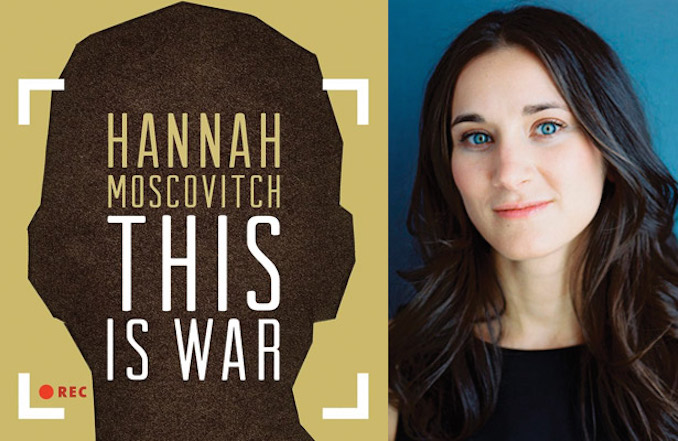
This week, I am pleased to have finally read Hannah Moscovitch’s 2013 Toronto Theatre Critics’ Award-winning play This is War. I’d been putting this one off for a while, even though my fearless editor recommended it quite strongly, just because of its topic, a botched military venture in Afghanistan, is one that I’ve seen altogether too often in media I’ve been watching lately, and I was tired of it. I was wrong to wait as long as I did, because now I wish that more authors would treat the actions of western soldiers in the War on Terror as generously and as elegantly as Moscovitch does.
Set both during and after 2007/2008, This is War is a Rashomon-style (WARNING: TV Tropes link) story of the war in Afghanistan. Three characters, Sgt. Stephen Hughes, Pvt. Jonny Henderson, and Master Corporal Tanya Young are being interviewed by an unseen journalist, on the topic of an event that occurred while the Canadian forces were holding Panjwaii, one of Afghanistan’s most volatile regions, with little support from other NATO forces.
Moscovitch’s non-linear narrative sets up the audience in an interesting role. As each of the soldiers is interviewed, the soliloquies pause to allow time for flashbacks, in which the audience is allowed to witness that character’s recollection of events. This ties in to Moscovitch’s foreword to the printed edition of the play, in which she says that she was struck by her interviews with soldiers returning from the war for Afghanada, and in particular one interviewee who said “you make the call you think you can live with.” This leaves the audience, in the position of the journalist to whom the soldiers speak, wondering which call, exactly, was the one that was made, and what, exactly, was the horrible event that occurred.
What is striking about This is War is that for the first half of its running time, even as a reader I found myself asking over and over again “what actually happened.” As live theatre, such a situation is even more gripping, as the audience itself becomes implicated in trying to discover the truth, while at the same time being confronted with a juxtaposition of humanity, solitude, and horror that explicitly acknowledges that everyone who returns from the front is different in one way or another.
More striking yet is that the audience’s question of what happened in Panjwaii is not directly answered by any of the three characters being interviewed, as none of them, it turns out, witnessed it first hand. As we discover, the mission in question was supposed to be a joint mission involving both Canadian and Afghan forces, and as the story develops, one is left to question first the extent to which the two armies communicate, and second, whether there was any benefit to this joint mission in the first place.
My only criticism about This is War comes from its conclusion. Entranced as I was by the “this is how I remember it” storytelling, I was surprised at how quickly the answer to the implied question is answered, and how little each of the protagonists had to do with it. Given Part 5, in which Anders discusses his participation in the cleanup detail, it struck me as an inclusion of additional detail outside the scope of the narrative conventions (interviews intersperses with flashbacks) that Moscovitch employs to such excellent effect throughout the majority of the play.
Nevertheless, This is War provides a sympathetic glance into the lives and work of both soldiers and journalists, while effectively conveying the personal trauma of those who have chosen to fight in Afghanistan. If you find it playing in a theatre near you, I strongly recommend it.
A Canadian playwright who has recently come to prominence, Hannah Moscovitch was the first playwright to win the Trillium Book Award (in 2014), and is the author of Mexico City, Essay, The Russian Play, East of Berlin, This is War, Little One, Other People’s Children, The Huron Bride (a ghost story) and In This World (for young audiences), as well as the short opera I have no stories to tell you. She tweets @moscotweets.

